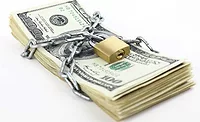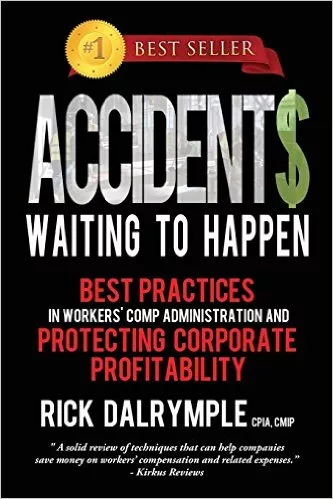Preventing Theft in Your Business
The longer you have been in the business, the less theft and other employee issues surprise you. It all boils down to the law of averages - the more people you hire and are in contact with, the more likely you are to run across someone who may steal from you.

The longer you have been in the business, the less theft and other employee issues surprise you. It all boils down to the law of averages - the more people you hire and are in contact with, the more likely you are to run across someone who may steal from you. However, just because the law of averages increases the odds of your being a victim to theft does not mean you cannot do things to help prevent it.
Ownership culture can subtly impact how employees perceive stealing from the boss. For example, the military is famous for this; the government wastes money, soldiers feel underpaid and there is almost a built-in tradition of taking advantage of the system. Everyday people who would never steal from you or me think it is OK to permanently borrow things from Uncle Sam. An owner who never visits the jobs and at the same time shows off his or her wealth with nice homes and cars can contribute to a jobsite attitude that the boss has plenty of money. An owner who does not know the numbers and leaves it all up to the bookkeeper is inviting embezzlement. How you interact and function with your employees can determine what their sense of entitlement is. By the way, one other thing can greatly impact employee theft: the owner taking cash from the business. Seeing you steal gives a green light to your employees. Not only that, if you catch them in the act, they can just threaten to turn you into the IRS if you prosecute. This has happened on more than one occasion.
However, the best of companies and owners can still experience theft. You can't prevent theft entirely, but you can hopefully help control it with some commonsense practices. My grandfather told me that locks were installed to help keep honest people honest. No safeguards are failsafe, but a lot of theft prevention can be achieved with minimal effort. Unfortunately, most people don't try to implement such safeguards until after they are victimized. The following items offer some ideas you might want to consider.

Look into the details of your coverage. You may be surprised by what you are not insured for. My understanding is that it is nearly impossible for contractors to obtain insurance for employees who steal something from a customer. In other words, if that Rolex watch disappears from the house, you probably are not insured. I am not an insurance agent, so I am not qualified to provide insurance advice but my advice is to call a professional and ask what you are and are not insured for, regarding theft.
The greatest deterrent regarding embezzlement and jobsite theft is to know your numbers and look at them each month. You should be working from a budget and checking job costs. If jobs are coming in on time and making money, then that money should be showing up in the profit and loss statement. By having an accounting meeting each and every month in which you review job costs, a profit and loss statement and a balance sheet, you will make it much harder for a person to steal from you.
With gas prices so high, simply writing down the mileage and gallons with each fill-up can help monitor theft. You may also want to consider adding GPS to your trucks. However, when doing so, be prepared to fire someone. I suggest you tell the employees you are adding the GPS, stating that it is being implemented to save money on insurance and help monitor maintenance. You can add, "By the way, it will tell us where the truck is at all times, but that won't be an issue for you guys, as I know you are always where you need to be."
In summary, you cannot keep a thief from stealing from you, but you can shift the odds to your favor and make it less likely to happen. A little common sense can go a long way to help prevent employee theft.

The longer you have been in the business, the less theft and other employee issues surprise you. It all boils down to the law of averages - the more people you hire and are in contact with, the more likely you are to run across someone who may steal from you. However, just because the law of averages increases the odds of your being a victim to theft does not mean you cannot do things to help prevent it.
Ownership culture can subtly impact how employees perceive stealing from the boss. For example, the military is famous for this; the government wastes money, soldiers feel underpaid and there is almost a built-in tradition of taking advantage of the system. Everyday people who would never steal from you or me think it is OK to permanently borrow things from Uncle Sam. An owner who never visits the jobs and at the same time shows off his or her wealth with nice homes and cars can contribute to a jobsite attitude that the boss has plenty of money. An owner who does not know the numbers and leaves it all up to the bookkeeper is inviting embezzlement. How you interact and function with your employees can determine what their sense of entitlement is. By the way, one other thing can greatly impact employee theft: the owner taking cash from the business. Seeing you steal gives a green light to your employees. Not only that, if you catch them in the act, they can just threaten to turn you into the IRS if you prosecute. This has happened on more than one occasion.
However, the best of companies and owners can still experience theft. You can't prevent theft entirely, but you can hopefully help control it with some commonsense practices. My grandfather told me that locks were installed to help keep honest people honest. No safeguards are failsafe, but a lot of theft prevention can be achieved with minimal effort. Unfortunately, most people don't try to implement such safeguards until after they are victimized. The following items offer some ideas you might want to consider.

Insurance
Insurance is a great place to start. Of my 200 networking customers, only one had his shop burn down, yet more than 10 have experienced some form of embezzlement. Based on this sample group, you have a 0.5 percent chance of having a fire burn down your business, but the odds of someone stealing from you are in excess of 5 percent. Ask your insurance agent if you have embezzlement coverage. It is relatively inexpensive and well worth the investment. More good news is that if you experience some type of embezzlement, you turn the claim over to the insurance company and they seek retribution from the individual who took the money.Look into the details of your coverage. You may be surprised by what you are not insured for. My understanding is that it is nearly impossible for contractors to obtain insurance for employees who steal something from a customer. In other words, if that Rolex watch disappears from the house, you probably are not insured. I am not an insurance agent, so I am not qualified to provide insurance advice but my advice is to call a professional and ask what you are and are not insured for, regarding theft.
Hiring
Hiring practices can contribute greatly to potential thievery in a business. Drug screening, background checks are essential, and, in the case of an office manager or bookkeeper, a credit check makes sense. People with a drug habit cannot often steal to support that habit. Hiring an office manager with credit problems is foolish. That is like hiring an alcoholic to be a bartender and saying it will not be an issue. I know of two companies whose owners discovered the bookkeeper had an online gambling problem, so credit and background checks are a must.Bookkeeping
Accounting and bookkeeping safeguards can also help prevent a problem. Have bank statements mailed to your home and open and look at them each month. If you have a question about a check, ask your office person. Let folks know you are watching. Also, look at credit card and debit card entries. Electronic banking is one of the latest theft avenues. Also, remember that all theft does not involve bad people. Frequently, a bookkeeper steals because there is a kid in trouble or possibly sick. Keep honest people honest by checking up on things. Where possible, have a different person balance the checkbook from the person who pays the bills. Be wary of employees who never go on vacation or don't want anyone else to do their job while they are away.The greatest deterrent regarding embezzlement and jobsite theft is to know your numbers and look at them each month. You should be working from a budget and checking job costs. If jobs are coming in on time and making money, then that money should be showing up in the profit and loss statement. By having an accounting meeting each and every month in which you review job costs, a profit and loss statement and a balance sheet, you will make it much harder for a person to steal from you.
Use Common Sense
Jobsite practices can also help prevent losses. In accounting class, I remember the accounting professor talking about the importance of making the impression that you are checking inventory in the liquor store every weekend. His point was that no one can inventory a liquor store every weekend, but the employees don't know that and think you are keeping track of everything. Simple locks and keys for miscellaneous materials, video cameras in the shop and other safeguards can convince employees that the owner is following inventory in the same manner.With gas prices so high, simply writing down the mileage and gallons with each fill-up can help monitor theft. You may also want to consider adding GPS to your trucks. However, when doing so, be prepared to fire someone. I suggest you tell the employees you are adding the GPS, stating that it is being implemented to save money on insurance and help monitor maintenance. You can add, "By the way, it will tell us where the truck is at all times, but that won't be an issue for you guys, as I know you are always where you need to be."
In summary, you cannot keep a thief from stealing from you, but you can shift the odds to your favor and make it less likely to happen. A little common sense can go a long way to help prevent employee theft.
Looking for a reprint of this article?
From high-res PDFs to custom plaques, order your copy today!






